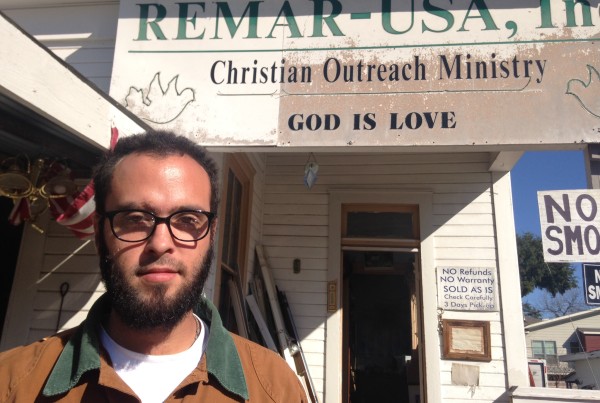This story originally appeared on KUT.
Last year Austin was named the top startup environment in the nation by the Kauffman Foundation. The year before that, it was No. 2.
That successful environment wouldn’t be possible without an active investment community ready to pour cash into what could be the next big thing.
The Austin Chamber of Commerce estimates that in 2014, $620 million in venture capital flowed through the city’s startups. A lot of money, but it ranks well behind cities that Austin might consider its tech peers, like Seattle, Los Angeles, Boston, New York and Silicon Valley.
So does Austin need more money to keep its startup environment successful?
What is venture capital?
There are tiers to investing in new companies, and all come with their own strings. At the very beginning, entrepreneurs will use personal savings, credit or rely on family and friends. This is a relatively small amount of money in the thousands. Assuming it grows, the business moves to the seed level, where angel investors may pump in hundreds of thousands of dollars, allowing the business to thrive.
The next step is where the big money comes in – that’s the venture capital, or VC. These are funds pooled from institutional investors, like pensions and high-net-worth individuals. On this tier, we’re talking millions of dollars – but this is not a lottery. The funds make investments with substantial risk, usually in new or rapidly expanding businesses, hoping for a big payday in the end.
Fund managers are targeting 20 percent yield over about a decade and will make most, if not all, of their money from only 20 percent of the companies. Running a venture capital firm is like betting on every couple at the prom to be married in 10 years: Most won’t, but the payout on the ones that do makes up for all the losses.
The problem
There’s been a lot said and written lately by entrepreneurs in Austin about how there is not enough venture capital to support its startup scene. Is that actually the case? Richard Bagdonas, chief healthcare architect at Austin-based MI7, has been launching companies since the ‘80s, and in Austin since the ‘90s. He says Austin fundraising has descended into the Dark Ages.
“There’s an imbalance on the number of investors, the amount of capital that’s being invested in Austin, compared with the number of startups that have begun over the last few years. So, I believe we’re in the Dark Ages of venture capital here in Austin, and I look forward to moving into more of a Renaissance period.”
And some entrepreneurs like Joah Spearman, the co-founder and CEO of Localeur, say they may have to move their companies. Localeur is an app that wants you to live and travel like a local, giving you the what’s-what on where to go in major cities based on reviews from residents of those cities. Spearman says the company has hit the requisite benchmarks of number of users and cities where it operates. He says much of the venture capital interest in Localeur is coming from non-locals.
“I’ve pitched the Austin VC firms already … some of them have told us that we need to get a Silicon Valley firm to invest in us first in order for them to invest, and some of them have not even been willing to hear our full pitch,” Spearman says. He’s going to pitch in Silicon Valley this spring.
But isn’t Austin supposed to be the hub of tech entrepreneurship? Where did all of that money go? Did it just leave?
The void
For more than 30 years, the king of venture capital in Austin was the aptly named Austin Ventures, which specialized in local startups. Austin Ventures raised nearly $4 billion, turning startups like HomeAway into household names. According to Fortune Magazine, $900 million was raised just eight years ago for its tenth fund. Attempts to raise an 11th fund recently were unsuccessful, and now its partners have splintered into other pursuits. Austin Ventures still exists, but it’s effectively managing its portfolio of companies into exits.
Its departure from the market may be what is sounding the alarm. But like any vacuum, another fund, or funds, will fill it.















